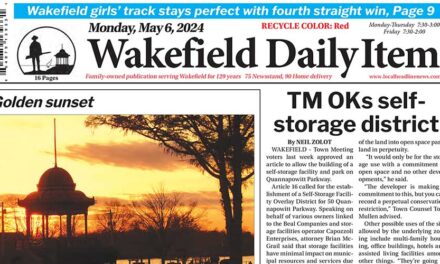WALTHAM — Today, Massachusetts Climate Action Network (MCAN) and Clean Energy Group released an assessment for energy storage alternatives for Project 2015A, the natural gas and oil powered peaker plant proposed by the Massachusetts Municipal Wholesale Electric Company (MMWEC) for Peabody. The assessment was conducted by Strategen, a global consulting firm with leading technical modeling and analytics expertise on a mission to decarbonize energy systems.
The report, “Assessment of Potential Energy Storage Alternatives for Project 2015A in Peabody, Massachusetts,” investigated the viability of battery technology as a replacement for the proposed fossil fuel peaker plant. Specifically, it examines Project 2015A and energy storage in terms of capacity provision, affordability, and emissions based on new Massachusetts climate laws, capacity markets and the implications for residents in environmental justice communities.
The Strategen Report makes several key conclusions based on the analysis:
1) Standalone batteries are projected to result in significant cost savings compared to Special Project 2015A. When accounting for capital, fuel, and operations and maintenance costs, as well as for the expected energy and ancillary services revenue, the net cost of batteries is projected to be significantly lower than that of Project 2015A.
2) The cost of a natural gas power plant extends well beyond the upfront cost of this project. Based on the Social Cost of Carbon developed by the Environmental Protection Agency, Project 2015A could cost Massachusetts almost $5 million within the next decade.
3) New MEPA amendments established by the Next Generation Roadmap bill highlight the significance of Environmental Justice issues, especially in communities already suffering disproportionate pollution burdens. This report demonstrates that clean energy storage is more economic, and also enables the use of more renewable energy, working to alleviate overburdened communities from chronic poor health and polluted air.
4) MMWEC’s proposed use of natural gas and hydrogen fuel would not be an economic or feasible solution to meet the capacity needs under consideration. The current lack of enabling infrastructure needed for hydrogen production, transportation, and safety and the lack of a clear or actionable plan to achieve such infrastructure mean that a hydrogen repowering is not a viable pathway for the MMWEC Peabody plant.
The report concludes that a battery storage option for Project 2015A is cost competitive, reduces global and local emissions, reduces noise levels, and alleviates harms on overburdened environmental justice communities.
“This assessment once again illustrates that battery storage is a cheaper and cleaner alternative to polluting fossil-fuel peaker plants,” said Clean Energy Group Vice President Seth Mullendore. “We’ve seen the same result in our work with environmental justice advocates across the country, from California to Kentucky and New York to Louisiana. Battery storage and renewable generation is the clear path forward, not locking communities and the climate into decades of additional devastating emissions.”
“Strategen’s report is a clear and compelling case for the cost competitiveness of investing in clean energy systems that can meet peak demand reliably. MMWEC must invest in resources that support a clean energy future and in projects that alleviate the burdens of poor health and polluted air for people in environmental justice communities,” Sarah Dooling, executive director of MCAN says. “A just transition begins now. The Department of Public Utilities should reject MMWEC’s request for project financing and the state should reopen the MEPA process.”




